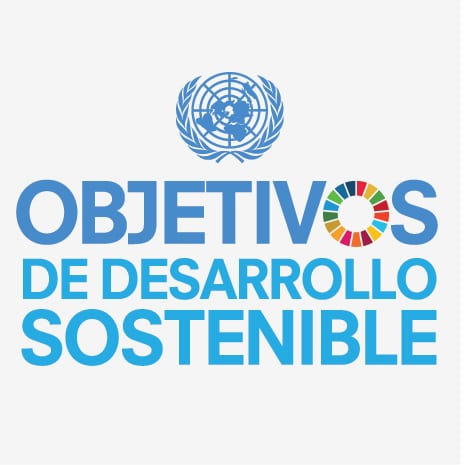 Vigilancia Tecnológica
Vigilancia Tecnológica
Challenges facing plastic recycling
Overall there has been 18% Increase in plastics production since 2009, the building and construction sector alone is 23.6% providing around £6.8 billion out of £27 billion total plastics turnover in the UK. Some 508 pipe extruders and 913 producers of rigid and flexible profiles across Western and Central Europe gives some idea of the size of this sector. Globally it is estimated that some 318 million tonnes of plastic are produced annually, of which 218 million tonnes is solid or rigid plastic waste. Global average plastics recycling is at 21% compared with 15% in 2016. According to the ISWA Report (International Solid Waste Association) published 7th May 2021, some 50m tonnes per year of plastic waste is incinerated with 10m tonnes finding its way into oceans and waterways.This has become widely known in the public domain leading to more pressure in finding ways to tackle this issue, but it has been unfairly levelled at the plastics industry itself.
For the processor, major challenges remain: although polymer prices have been dropping, they are still twice the cost per tonne compared to Sept 2020. Issues such as varying material quality, inconsistent stock availability and the plastics tax (if less than 30% recycled plastic is used) have created greater focus on recycling. This has resulted in greater wear on screws and barrels. Recycled plastics can vary significantly in melt flow due to contaminants remaining and moisture. Different plastics are often combined, making the content difficult or impossible to separate into polymer type, colour and structure. For example, PET and PVCmust be totally separated. Moisture control remains a big problem especially with PET.
There is movement toward greater use of bio-degradable polymers such as PVOH in packaging and Bio-PP in tubing for agricultural and forestry applications. Natural fibre fillers such as starch, cellulose, soya and gelatin are being increasingly used due their renewable attributes and lower environmental impact. For example, some studies have found that wood fibre filler combined with recycled PVC stabilises the recycled material for up to 5-7 cycles and improvement in material strength up to 10-15 cycles.
But particle fillers such as glass-fibre, talc and calcium carbonate remain popular as these produce cheap composites with greater strength, stiffness, heat deflection and creep-resistance. In the plastics industry, glass-fibre additive can range from 15% to 50%, making processing much more challenging: not only creating greater wear on screws, barrels and machine components in contact with the material, the material itselftends to degrade quickly due to its higher viscosity and abrasive content.
For the operator, working with and controlling recycled material adds further challenges such as using differing temperatures, screw speed and adjustment required to pressure. Increased wear on machine parts creates additional running costs.
According to PMM (Plastics Machinery & Manufacturing), extruder OEMs such as Battenfeld-Cincinnati and Coperion have seen increasing demand for machines that process bioplastics and recycled material, hence re-design of the processing line to meet the challenges of contamination, degassing (venting), moisture and corrosion.
For example, specialised screen changers with large surface areas while co-rotating twin-screw extruders offer greater flexibility especially where sectional barrels are used as vented sections can be moved around or added. This is particularly the case for PET moisture must be controlled. Natural fibre fillers mentioned earlier can contain significant levels of moisture: starch-based biopolymers can contain up to 12 percent with cellulose and wood fibre up to 8 percent.
Bioplastics are more temperature sensitive, hence Magog Industries have re-designed extrusion screws to minimise shear. These projects are increasing as processors are increasingly using biopolymers (with natural or organism derived cells) and bio-based polymers (partially or fully chemically synthesised). Changes in material processing behaviour (rheology) can mean re-design of the screw, e.g. change of compression ratio and mixer design required.
Despite best practice and quality control, recycled material can potentially cause problems such as the resin not fully melting or hard fragments causing wear or damage to screw flights and barrel bore. Regular monitoring is recommended so that problems can be addressed earlier if possible, before it becomes costly.
Bi-metallic hardened options along with specific alloy material for screws and barrels is recommended when processing with aggressive material. Magog Industries also can advise on coatings such as TDC (thin dense chrome), ceramic, tungsten carbide spray, (eg HVOF) being just some of the solutions available from Magog to assist all processors (compounding, extrusion, injection moulding and blow moulding) when processing with challenging material.
The push for the increased use of recycled plastics and use of bioplastics will continue to grow but technology also continues to develop: ‘de-manufacturing’ is an increasingly important element in product design and manufacture where components can be more effectively dismantled and sorted at end-of-life stage.
Back to Search Results
For the processor, major challenges remain: although polymer prices have been dropping, they are still twice the cost per tonne compared to Sept 2020. Issues such as varying material quality, inconsistent stock availability and the plastics tax (if less than 30% recycled plastic is used) have created greater focus on recycling. This has resulted in greater wear on screws and barrels. Recycled plastics can vary significantly in melt flow due to contaminants remaining and moisture. Different plastics are often combined, making the content difficult or impossible to separate into polymer type, colour and structure. For example, PET and PVCmust be totally separated. Moisture control remains a big problem especially with PET.
There is movement toward greater use of bio-degradable polymers such as PVOH in packaging and Bio-PP in tubing for agricultural and forestry applications. Natural fibre fillers such as starch, cellulose, soya and gelatin are being increasingly used due their renewable attributes and lower environmental impact. For example, some studies have found that wood fibre filler combined with recycled PVC stabilises the recycled material for up to 5-7 cycles and improvement in material strength up to 10-15 cycles.
But particle fillers such as glass-fibre, talc and calcium carbonate remain popular as these produce cheap composites with greater strength, stiffness, heat deflection and creep-resistance. In the plastics industry, glass-fibre additive can range from 15% to 50%, making processing much more challenging: not only creating greater wear on screws, barrels and machine components in contact with the material, the material itselftends to degrade quickly due to its higher viscosity and abrasive content.
For the operator, working with and controlling recycled material adds further challenges such as using differing temperatures, screw speed and adjustment required to pressure. Increased wear on machine parts creates additional running costs.
According to PMM (Plastics Machinery & Manufacturing), extruder OEMs such as Battenfeld-Cincinnati and Coperion have seen increasing demand for machines that process bioplastics and recycled material, hence re-design of the processing line to meet the challenges of contamination, degassing (venting), moisture and corrosion.
For example, specialised screen changers with large surface areas while co-rotating twin-screw extruders offer greater flexibility especially where sectional barrels are used as vented sections can be moved around or added. This is particularly the case for PET moisture must be controlled. Natural fibre fillers mentioned earlier can contain significant levels of moisture: starch-based biopolymers can contain up to 12 percent with cellulose and wood fibre up to 8 percent.
Bioplastics are more temperature sensitive, hence Magog Industries have re-designed extrusion screws to minimise shear. These projects are increasing as processors are increasingly using biopolymers (with natural or organism derived cells) and bio-based polymers (partially or fully chemically synthesised). Changes in material processing behaviour (rheology) can mean re-design of the screw, e.g. change of compression ratio and mixer design required.
Despite best practice and quality control, recycled material can potentially cause problems such as the resin not fully melting or hard fragments causing wear or damage to screw flights and barrel bore. Regular monitoring is recommended so that problems can be addressed earlier if possible, before it becomes costly.
Bi-metallic hardened options along with specific alloy material for screws and barrels is recommended when processing with aggressive material. Magog Industries also can advise on coatings such as TDC (thin dense chrome), ceramic, tungsten carbide spray, (eg HVOF) being just some of the solutions available from Magog to assist all processors (compounding, extrusion, injection moulding and blow moulding) when processing with challenging material.
The push for the increased use of recycled plastics and use of bioplastics will continue to grow but technology also continues to develop: ‘de-manufacturing’ is an increasingly important element in product design and manufacture where components can be more effectively dismantled and sorted at end-of-life stage.
Back to Search Results






